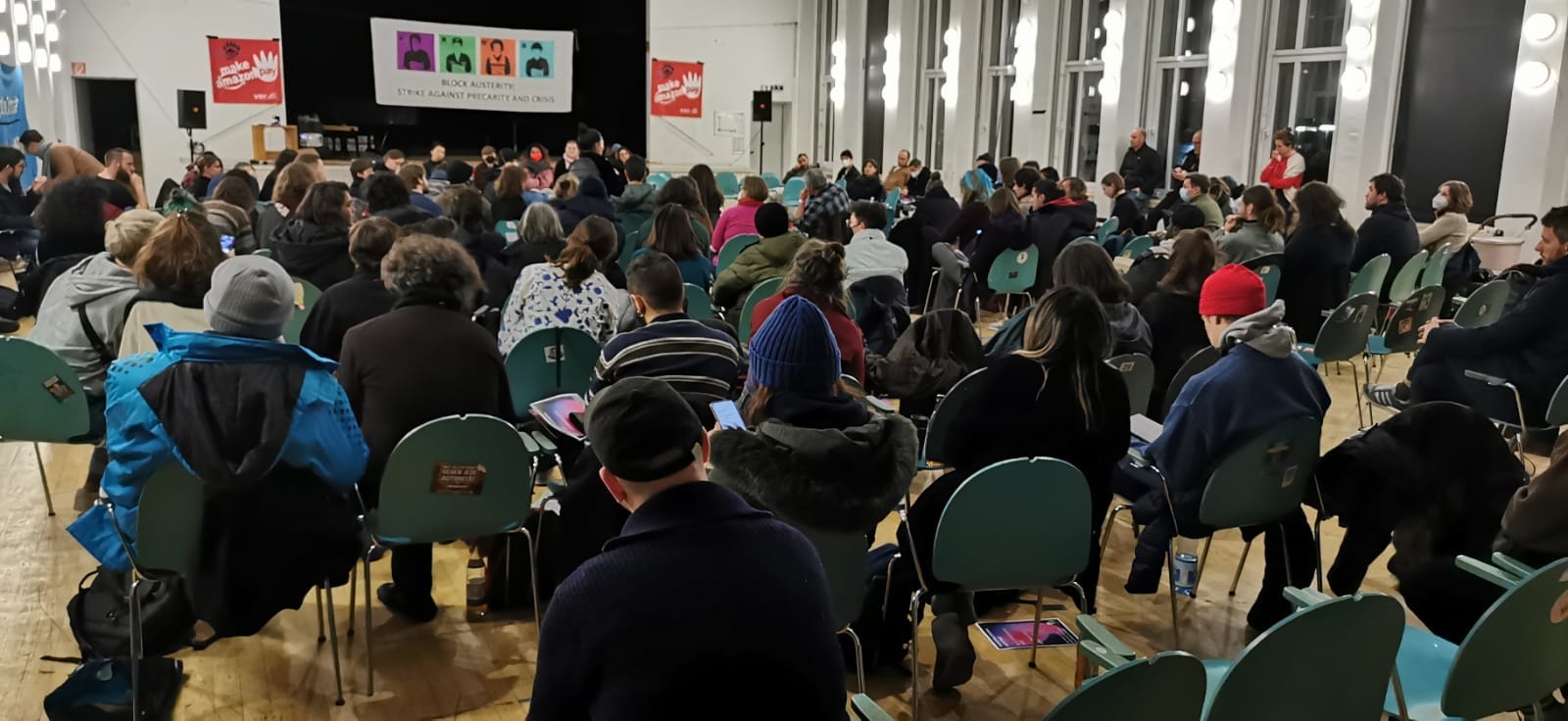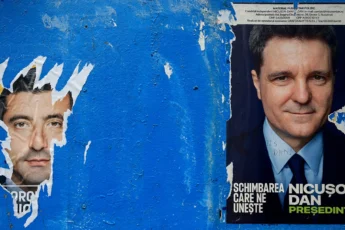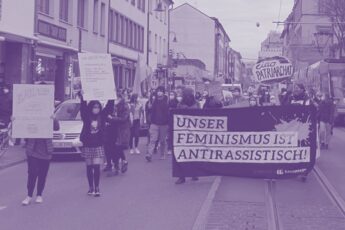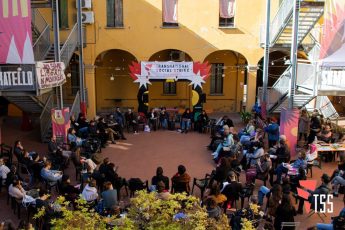
by TSS Platform
–150 activists from more than 20 European and non-European countries joined the meeting in Frankfurt, widening the commitment to engage in a transnational political process;
–We recognize that the invasion of Ukraine is not a local event and represents a turning point that is already impacting and will heavily impact on our political initiatives in the years to come;
–The war and its effects on climate, feminist, migrant, antiracist and labor struggles are crucial fields where to develop common strategies and to organize together;
–Beyond the necessary work of making struggles communicate and putting into practice our transnational links, we need to build something new together;
–The TSS coordination, as a political infrastructure of strategic exchange, is the space where this discussion around a common transnational strategy will be carried on in an enlarged form and will work together to physically meet again in the next few months.
From 10th – 12th February around 150 workers, feminists, environmentalist and antiracist activists, migrants and unionists from more than 20 countries (see below the names of the registered organisations) – within and outside the EU – met in Frankfurt am Main for the transnational meeting organized by the TSS Platform with the support of the Interventionistische Linke (IL). Our discussions for a meeting in Frankfurt began at the previous meeting in Sofia in September 2022, along with old and newer comrades.
Thanks to the diverse participation, the meeting in Frankfurt acknowledged the growing need of coming together transnationally to face the global events that risk leaving us paralyzed to act, such as the covid pandemic, the climate crisis and the war in Ukraine with the danger of sliding towards further escalation. All these events have global consequences and are impacting the lives of millions of people, reshaping the political conditions we all live in. More than ever, we need a common transnational strategy which allows us to build stronger capacities and to raise a common voice. While the TSS platform has pursued this task since the beginning, after Frankfurt this urgency is showing itself in more places and gaining wider resonance and focus.
Facing the reality we live in, here and now: strike the war and climate crisis
We recognize that the invasion of Ukraine is not a local event but the latest iteration of previous conflicts and wars further away from European eyes, and represents a turning point in global relations that are already being felt and will heavily impact on our political initiative in the years to come. At the same time the political responses to the war in Ukraine has created huge obstacles in our different contexts. We are facing a conundrum: on the one hand, the war is an unavoidable political problem we need to address in order to intervene in a present deeply marked by the slide towards further escalation and expansion in other regions, as we see with the rising tensions between China and the United States and NATO; on the other hand, this war demands we radically rethink what an anti-war movement might look like, so that it doesn’t fall into the ready-made camps that are filling the political space. What does it take to build an anti-war stance that is driven by the daily struggles of all those who suffer the harshest consequences of the war? What kind of political infrastructure is needed to facilitate it? Following what we learned from the Permanent Assembly Against the War (PAAW) in the past months, we call this effort a transnational politics of peace.
The war presents an existential threat for any kind of possibility of a transnational coming together and obstructs collective political initiatives in all types of struggles.
Either we face this threat by openly working through the disagreements between different positions, or we succumb to a fate of nationalistic hatred and militaristic sentiments. Facing this situation, the PAAW plenary opened the meeting. We have seen how relieving it was to be able to talk with each other despite the disagreements and with mutual comradeship. We have sensed how rare this has become in a situation where militarization is invading also the way in which we think, spreading fear and mistrust. We showed the potential of how, by looking at the war and its consequences from different positions, histories and experiences, we can erode the apparent fixed necessity of the war-logic and its supposed clear cut alternatives. We asked ourselves whether the support to our governments and the European Union over the sending of weapons is the only alternative we have to be on the side of those who suffer from the Russian invasion. We have claimed that all those who are directly or indirectly, more or less closely, affected by the current slide towards war and more war should be allowed to have a say and join the discussion.
One of the tasks we face is no less than reinventing an anti-militarism that goes well beyond the blocking of the military industry, reaching out to workers and migrants, women and lgbtqi+ people hit by the present neoliberal regime in military disguise. The war is changing drastically the European Union and its relationship with the neighboring regions and countries. Patriarchal discourses and EU policies against migrants are more and more designed within a military logic. In response to the war, we have seen governments all over resorting to fossil fuels and putting aside green transition. In the reconstruction plans of Ukraine we see how green policies and transnational capital are interlaced. The recent struggle in Lützerath has manifested vividly these contradictions. All this poses new questions to the migrant, feminist and climate movements. In particular, the connection of militarization and climate change will be one of the focal points of our future discussion.
From the local to the transnational and back
This situation requires a common reading and a collective exercise in political imagination. To strategize transnationally should not be seen as a project opposed to the concreteness of the local struggles we will continue to engage in, nor be limited to a simple coordination of what already exists. We will work again and again to give a palpable and visible shape of the multiple ways in which our local struggles are crisscrossed by dynamics that are transnational.
But for us the transnational dimension is first and foremost what opens spaces where also the local struggles can become stronger and have a wider resonance.
During the meeting we have shared our experiences of struggle, in the effort to learn from each other, understand together limitations and potentialities, so we can be more effective. We drew on ongoing examples of transnational strikes: the feminist strike, the climate strike, the transnational strikes of Amazon workers ranging from Poland and Germany to the US and Turkey. We discussed problems of tactics of the climate movement, for instance how to counter the opposition between workers’ demands and climate justice demands, how to understand the ongoing green transition as a field of capitalist accumulation and of the struggle against capital, how to organize against the border regime and for freedom of movement, how to make the feminist strike a powerful tool again beyond all rituals and in relation to the current scenario (see below the links to the reports of all the workshops). We have mapped our current struggles trying to imagine unexpected links and connections that allow us to further experiment political strikes as tools against the multiple ways in which power expands its grip.
Tackling what divides us
We are fighting against transnational enemies: patriarchy, climate change/green transition, the logistics of exploitation, border regime, war champions all around the world. Simultaneously we must deal with differences in strike laws, wage conditions, local impacts of the green transition, regulations of abortion, visa regimes for migrant workers, and the effects of the war. There is not only one practice that solves all problems. Every political and social strike opens the question of how to involve those who are working and are damaging profits by interrupting labor, how to bridge the gap between social movements and workers that is deepening in the current situation and how to intervene in existing movements bringing to the fore the intersecting between war, exploitation, oppression, racism, patriarchal violence and climate degradation.
The change in the political conditions around us requires that we constantly rethink the conditions in which we struggle, in order not to make the strike a ritual or a brand. To do this requires a steady transnational dialogue which allows us to gain a deeper understanding on our social reality that are shaped by transnational processes.
The fragmentation of conflicts and the sectorialization of struggles is part of the strategy from the governance of neoliberal capital, designed to disperse and weaken our demands and mobilizations against it.
What they fear is first and foremost collective organization. For instance, the strategy of putting ecologist demands against the demands of workers is also a strategy to break potential alliances and convergences of these struggles that have much in common. This strategy of fragmentation is ever more visible now that neoliberal capital is the process of militarising itself. Neoliberal fragmentation currently adds to the rift between the different blocs and nationalities brought about by the war in Ukraine and its global consequences. Against the effort from above to build boundaries among us, between nationalities, between East and West but also between sectors, identities, and demands, we must openly tackle what divides us so we can build common struggles together.
Strengthening our political infrastructure
We left Frankfurt with the commitment by many to engage in this collective process of building a common transnational strategy and with the feeling that, almost ten years after the last experiment of Europe-wide movement such as Blockupy, the building blocks of a transnational movement are piling up within Europe and beyond. The TSS is enlarging its reach towards Central Asia, towards Africa and Eastern Asia. We will cultivate these relationships in the near future knowing that the transnational dimension does not stop at the EU’s borders and requires us the determination to smash all the borders we encounter, starting from the walls that are being built to secure the European “garden” against the outer “jungle”, to quote the words of yet another racist EU official.
The TSS coordination, as a political infrastructure of strategic exchange, will continue in an enlarged form as a space where this discussion around a common transnational strategy is carried on and will work together to physically meet again in the next few months.
Beyond the necessary work of making struggles communicate with each other and putting into practice our transnational links, we have discussed the need to build something new together. The question is how do we initiate a collective formation of a transnational initiative to agree on common priorities. We have started to discuss the question of what a transnational mobilization can look like today in a present marked by the escalation of war and the climate crisis; what kind of hypothesis and intervention for the near future can lead us in a common direction. In this way, the meeting in Frankfurt paved the way for an organizational process towards a transnational initiative that can tackle the war and its impacts on climate, feminist, migrant, antiracist and union struggles. This is now the challenge we need to face together as a common path. We invite all those who share this urgency and want to engage in this collective process to join us.
To get in contact, email us at: info@transnational-strike.info
To receive updates join the newly formed TSS telegram channel: https://t.me/transnationalstrike
Read the callout for the meeting in Frankfurt: Strike the War and the Climate Crisis!
Read the reports from the discussions held in Frankfurt:
INQUIRIES ON THE PRESENT PART I – End of the World, End of the Month – Same Struggle
WS 1: Exchanges and experience of climate movement(s)
WS 2: NetZero & The Green Transition – New cycles of capitalist accumulation
WS 3: Workers for and against Climate
INQUIRIES ON THE PRESENT PART II – Striking Social Reproduction
WS 4: Rising the tide: connecting feminist and essential struggles
WS 5: Migration as a social movement
List of registered organisations:
ACV Puls (belgian union), Academy of Democratic Modernity, Aktion Bleiberecht, Alarme Phone Maroc, Anametrisi, Angry Workers , Antifaschistische Linke International / Rheinmetall entwaffnen, Berlin Riders, Berliner Gazette, Betriebsrat CAP gGmbH (Care-Bereich), Amazon Workers International, Make Amazon Pay, Bibliofem, Climáximo, Collectif 8 mars Belgique, Connessioni Precarie, Coordinamento Migranti, Coordination féministe, European Action Coalition for the Right to Housing and the City, Extinction Rebellion Malta , FAU Leipzig, FAU Bonn, Fridays for Future, Fem Link, Feminist Strike Munich, Feminist Translocalities, Feminist Anti War Resistance, Feministischer Streik Bonn, Flink Workers Collective, Fridays for Future Frankfurt , Förbundet Allt åt alla (Everything for everyone), HDP-Germany, Infokolpa initiative from Ljubljana, OZZ Inicjatywa Pracownicza / Workers’ Initiative, Journal for Critique of Science, Junge AbL, Klikaktiv – Center for Development of Social Policies, Kurve Wustrow, KyrgSoc, LabourNet Germany, LevFem, Lützerath Lebt, May 1st Labor Union, Mediterranea Berlin e.V., Nevidimi Zhivotni, No Borders Netzwerk Würzburg, Plan C, Women’s Strike Assembly UK, RAS LE BOL, SAC, School of Transnational Organizing, Seebrücke Würzburg, Solidarity Network, Solidarity with refugees in Libya (soliwRIL), StudentsForFuture Germany, System Change not Climate Change Vienna, THWS, Theater X, Transbalkan Solidarity, Transnational Institute – TNI, UmsGanze, Union Syndicale Solidaires , Watch the Med – Alarm Phone, We’ll Come United, Women’s Assembly of Migrant Coordination, Worker’s Voice, dgb-Bildungswerk Hessen e.V., express. Zeitung für sozialistische Betriebs- und Gewerkschaftsarbeit, Interventionistische Linke, kmii hanau / Welcome to Europe, no one is illegal, welcome to Europe, seebrückeffm, ums ganze, unter_bau, World congress for climate justice, ÖkolinX





